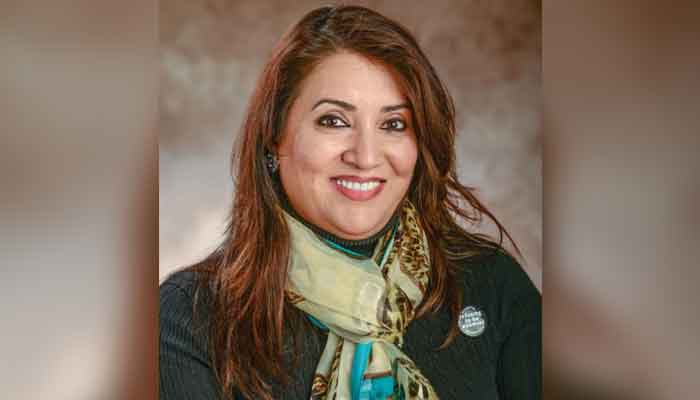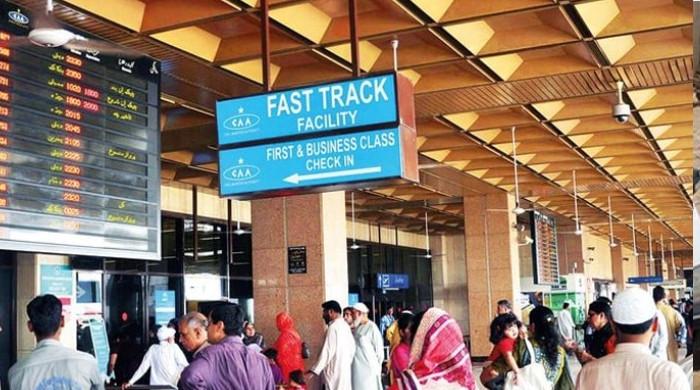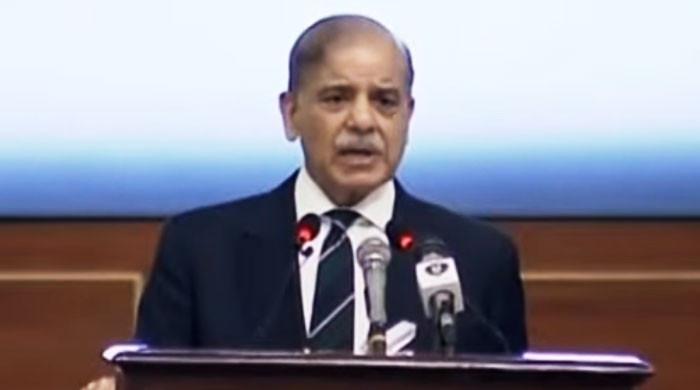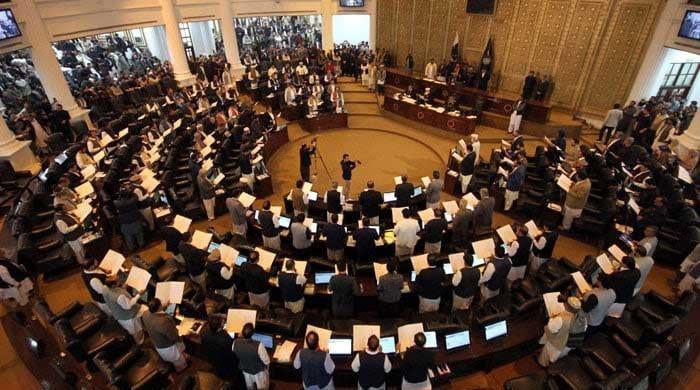US govt to recognise Pakistani-American psychiatrist as top faith leader
Dr Farha Abbasi is one of 15 women faith leaders who would be recognised for her extraordinary leadership qualities in service of humanity
March 29, 2023

- Event to be hosted on March 30 to honour 15 women for their services.
- Dr Abbasi is assistant professor in Department of Psychiatry at Michigan State University.
- Ambassador Masood Khan felicitated her for making Pakistan proud.
The US Department of Health and Human Services will recognise Dr Farha Abbasi, a renowned psychiatrist and active member of the Pakistani-American community in Michigan, as one of the nation’s top women faith leaders.
An event — Women on the Frontlines: Celebrating Women Faith Leaders — would be hosted by US Secretary of Health and Human Services Xavier Becerra on March 30 to honour 15 women faith leaders for their incredible work and extraordinary leadership qualities in the service of humanity.
Dr Abbasi is an assistant professor in the Department of Psychiatry at Michigan State University and a core faculty member of the Muslim Studies Program. She received the American Psychiatric association SAMSHA Minority fellowship in 2009 and used the grant money to create awareness about cultural competency, to redefine it as not just tolerance but acceptance. Her areas of interest include faith and cultural psychiatry and teaching medical students how to provide culturally appropriate care to Muslim patients. She works directly with the Muslim American community to encourage integration rather than isolation from mainstream society.
Dr Abbasi is the founding director of the Annual Muslim Mental Health Conference which was attended by experts from 30 countries. She also launched a Global Muslim Mental Health Conference in Malaysia and Jordan. She is also making efforts to create safe spaces for people affected by domestic violence and substance abuse.
'Another feather in our cap'
Pakistani Ambassador to US Masood Khan felicitated Dr Abbasi, in a telephone call, for making Pakistan and the Pakistani diaspora in the US proud with her singular achievement.
“It is yet another feather in our cap, proving the huge talent and capabilities of the Pakistani diaspora,” he said.
Talking to the ambassador, Dr Abbasi said that she has been working for the past 15 years not only to reinforce the efficacy of faith and cultural-based solutions in addressing mental health issues but also to remove the stigma that typically surrounds mental health issues, especially in developing countries.
The envoy appreciated her services in providing a healing touch to those who needed our attention the most. He also acknowledged her efforts in bringing the people of the two countries together.
Masood said that mental health facilities were available in all major hospitals of Pakistan and efforts were afoot to ensure the provision of such facilities in far-off places. He said that psychiatry was being taught in major universities in Pakistan and was becoming a popular discipline. The ambassador added that efforts were being made to create robust linkages between the universities of Pakistan and the United States for sharing knowledge and expertise.
The ambassador further said that the doctors’ community of Pakistani descent in the US could significantly help their Pakistani brothers and sisters in addressing issues related to mental health issues, creating greater awareness, overcoming resource constraints and most importantly removing the stigma attached to such issues due to a variety of reasons.











